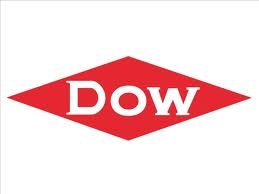There are very few terms in the investment world that can illicit as much fear as the statement “Oil prices are going…”, regardless of what is inserted after the verb. When we hear that oil prices are going up because the cost to extract it is becoming more expensive, we can begrudgingly accept that fact because we understand it. What we fear most about oil prices is when we don’t completely understand the reason prices are changing. This is the realm of derivatives, futures contracts, and speculation. Let’s take a look at the basics of the financial aspect of oil and see what makes us so scared of it.
An investment idea with the best of intentions…
Like all basic commodities, oil can be bought and sold on a futures contract. These contracts mean that you are willing to buy a set amount of oil today based on current prices and receive delivery at some time in the future. It’s the same idea as buying home heating oil in the summer to be delivered in the winter. The hope is that when you buy, also known as taking the “long position”, the price of oil is less than what it will be when you actually need it. On the flip side, you are taking a risk that oil prices will drop between the times of purchase and delivery.

Conversely, producers of oil and natural gas will want to write a sell contract, or take the “short position” whenever they believe that the prices of oil and gas are about to drop. Probably one of the most visible companies participating in these kinds of contracts is LINN Energy LLC (NASDAQ:LINE) As a master limited partnership looking to provide consistent payouts to its shareholders, it writes several hundred million dollars in futures contracts to shield against any major price fluxes that would damage the company’s ability to pay out distributions.
…plagued by an investor’s greatest enemy
These contracts are a way to make the unpredictable world of commodity prices become slightly more predictable, if left to the producers and consumers of oil. The catch is that there are several more players out there who simply buy and sell these futures contracts who neither produce oil nor consume it. Banks, money managers, even individuals can buy or sell these contracts on the mercantile exchanges, and more and more people are doing so. The following chart shows how open contracts — oil that has been bought but not yet delivered — have grown significantly over the past several years.

Source: U.S. Energy Information Administration
Investors who do not have a direct working interest in oil and gas mostly use these futures contracts as a way to bet, or “hedge”, against inflation. Thanks to some recent fears that the Federal Reserve will slow its bond buying program, these inflation-hedging financial instruments are picking up. Both the United States Oil Fund LP (ETF) (NYSEARCA:USO) and the ProShares Ultra DJ-UBS Crude Oil (NYSEARCA:UCO) are some of the top traded ETF’s on the market today, both averaging well over 2 million in trade volume per day.
The difference in how these two different groups buy and sell in the market is astounding. While most contracts from parties that either produce or consume oil look to lock in prices to prevent a slide…

Source: U.S. Energy Information Administration
…non-commercial parties have been betting heavily that the price of oil and gas will go up:

Source: U.S. Energy Information Administration
While investing in oil futures can be lucrative, it also can be driven by one of the nemeses of long-term investors: fear. The best example of this was the oil price shock between 2007 and 2008. At the time, there were some serious concerns over whether oil supply could keep up with demand. What made this even worse, though, is that news articles (like this Bloomberg one) drove people into futures contracts hoping to use oil as an asset that was poised to spike in the following months. But as the great economist Benjamin Graham noted years ago: “In the short run, the market is a voting machine, but in the long run it is a weighing machine.”



